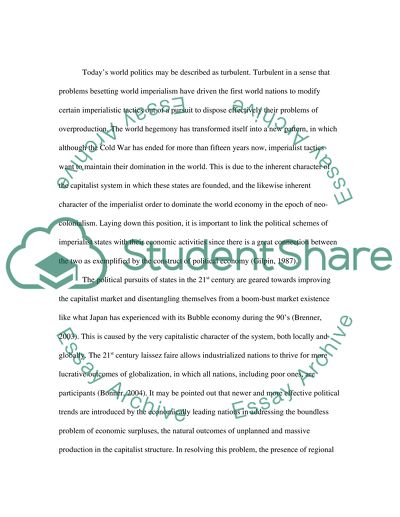Cite this document
(“Nonaligned Movement Essay Example | Topics and Well Written Essays - 4000 words”, n.d.)
Nonaligned Movement Essay Example | Topics and Well Written Essays - 4000 words. Retrieved from https://studentshare.org/politics/1499181-nonaligned-movement
Nonaligned Movement Essay Example | Topics and Well Written Essays - 4000 words. Retrieved from https://studentshare.org/politics/1499181-nonaligned-movement
(Nonaligned Movement Essay Example | Topics and Well Written Essays - 4000 Words)
Nonaligned Movement Essay Example | Topics and Well Written Essays - 4000 Words. https://studentshare.org/politics/1499181-nonaligned-movement.
Nonaligned Movement Essay Example | Topics and Well Written Essays - 4000 Words. https://studentshare.org/politics/1499181-nonaligned-movement.
“Nonaligned Movement Essay Example | Topics and Well Written Essays - 4000 Words”, n.d. https://studentshare.org/politics/1499181-nonaligned-movement.


